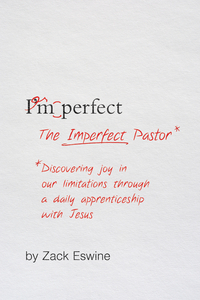
Martin Luther said oratio, meditatio, and tentatio (prayer, meditation, and trial) are the indispensable ingredients for proper theological study.
For years I’ve labored as a pastor convinced of Luther’s laws, but to tell the truth, I’ve only experienced two of them with any regularity. Prayer and meditation have been faithful friends, yet trials has been something of a distant relative—until last fall. Tentatio knocked on my door around November and he seems to have taken up an extended residence in my life.
The Trials We’ve Faced
Our season of suffering arrived when one of our deacons found out his third child would likely not survive many hours outside the womb. God’s hand of providence took baby Eli home a few months before his due date and we wept together. Death struck again just ten days ago when a beloved church member’s heart unexpectedly failed in the middle of the night and his earthly pilgrimage came to an end.
In between we’ve watched another dear member waste away before our eyes as cancer ravages his body. We’ve counseled church members with immediate and extended family members passing away. We’ve walked through instances of secret sin seeking to steal souls and mar relationships. We’ve prayed with brothers and sisters in Christ whose bodies are failing. The storm clouds of suffering still hover overhead.
I’m thus getting a first sense of how trial teaches and shapes not only our theology, but our church’s life together. Tentatio is indeed a faithful tutor when it’s married to faith in Christ. Here are the sweet lessons we’ve feasted on these last few months.
What the Trials Teach
Suffering has brought us greater unity. Like soldiers fighting in a foxhole together creates unusually strong relationships, so too does suffering together bring peculiar unity to a church. Many relationships now have a strength from shared suffering that I doubt could have come in any other way. Intercessory prayer is more active. Concerns of mercy and benevolence, already large, seem to burst forth at every corner. It’s quite difficult to let petty differences and disputes reign when death is moving. Which leads to the second lesson . . .
Suffering has brought us joyful perspective. We’ve learned afresh that life is short, death is real, and pain is great. Yet, oh how kind God is to comfort us in grief! These are principles many of us have heard about and endured separately, but now have experienced them together. We’ve seen how God’s promises take on new significance when suffering strikes. The ministry of God’s word becomes ever sweeter. The songs of the saints rise with greater volume. The vaporous nature of life is more keenly felt. This renewed perspective is a means to what is the ordinary walk of a Christian this side of heaven: joy in suffering.
Suffering has taught us the unshakeable power of God’s word. Without the truth of Scripture, what meaning can we find in suffering? Without God’s self-revelation, how can we know how Christ relates to our pain? Without God’s word, where would we find hope and strength?
What I’ve seen—maybe most acutely—over these last few months is what happens when a church lives in, around, and under the Truth. The Word is everything to God’s people. Like Luther famously said in another place, “The word did it all.” God’s word is the ballast in the boat of our corporate life.
Seasons of suffering, like the one we’re in, are times when our corporate boat sails through storms of Satan’s fury and death’s wrath. Our enemies sling their greatest waves our way and mean to tip us over. What will we do? Grieve we will, but fall we won’t, for our Lord has conquered death. What is left for God’s people is to stand on the truth of God’s word and in the victory of God’s Son.
And so we sail towards the heavenly city with confidence and certainty in spite of the storm, for nothing can assail God’s power delivered through His ordinary means. This is what tentatio has taught us.
 Zack Eswine is a pastor and author with a style all his own (could we call it “contemplative?”) and a unique experience in the academy and ministry. He is someone worth listening to.
Zack Eswine is a pastor and author with a style all his own (could we call it “contemplative?”) and a unique experience in the academy and ministry. He is someone worth listening to.





